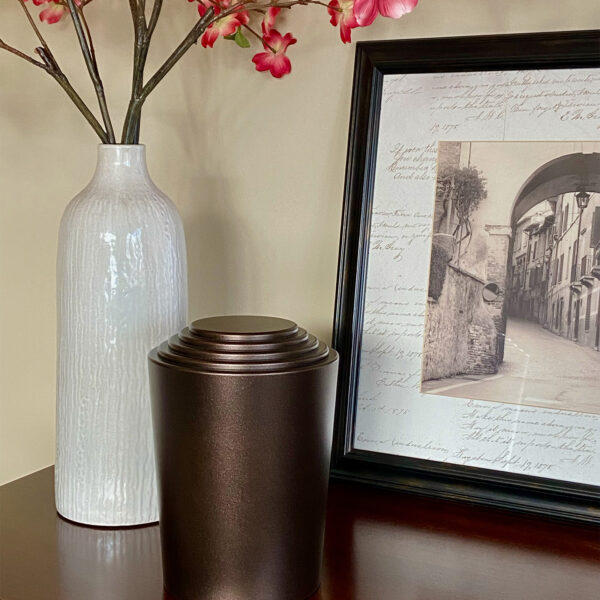Exploring the Pros and Cons of Cremation

Cremation has become an increasingly popular choice for funeral arrangements, offering families flexibility and affordability compared to a traditional burial. Choosing cremation comes with its own set of advantages and disadvantages that families should carefully consider before making such a big decision on behalf of the departed. In this article, Everkeep Memorials will explore the five pros and cons of cremation to assist you in making an informed decision for yourself or a loved one.
Advantages of Cremation
Cost-Effectiveness
Let’s face it: funerals are expensive. Cremation is often more affordable than traditional burial, as it eliminates the need for costly caskets, burial plots, and embalming services. Families can save thousands of dollars by opting for cremation, making it a practical choice for those on a tighter budget.
Environmental Friendliness
Cremation has a smaller environmental footprint than burial, as it requires fewer resources and space. Traditional burial involves embalming fluids, non-biodegradable caskets, and burial vaults, which can contribute to soil and water pollution. Cremation reduces the need for these resources, making it a greener option for environmentally conscious individuals.

Flexibility in Memorialization
Cremation offers families greater flexibility in how they choose to memorialize their loved ones. Following cremation, families can opt for various memorialization options, including scattering ashes in meaningful locations, interring ashes in a cemetery or columbarium, or keeping ashes in a customized decorative urn at home. This flexibility enables families to fully customize the memorial to reflect the preferences and wishes of the deceased.
Portability and Accessibility
Cremated remains are highly portable, allowing families to transport them easily to different locations or distribute them among multiple family members. This portability gives families greater flexibility in how they choose to honor their loved ones, whether by scattering ashes in various locations or keeping a portion of the remains with each family member.
Preservation of Land
Cremation helps preserve valuable land and resources by reducing the demand for burial plots and cemetery space. As modern urbanization and population growth continue to pressure land availability, cremation offers a sustainable alternative that helps conserve land for other purposes, such as parks, playgrounds, and urban development.

Disadvantages of Cremation
Lack of Tangibility
Unlike traditional burial, cremation does not leave behind a physical gravesite for loved ones to visit and mourn. For some individuals, the absence of a tangible marker can make the grieving process more challenging and may lead to feelings of disconnection during loss.
Cultural and Religious Considerations
Cremation may not align with specific individuals’ or communities’ cultural or religious beliefs. In some cultures, burial is considered a sacred and traditional practice with deep cultural significance. Choosing cremation over burial may conflict with these beliefs and traditions, leading to emotional distress or cultural tensions within families.
Emotional Impact
For some individuals, the process of cremation and the handling of cremated remains may evoke strong emotions and feelings of discomfort. Witnessing the cremation process or handling ashes can be emotionally challenging and may intensify feelings of grief, pain, and sadness for some family members.
Limitations on Traditional Memorialization
While cremation offers flexibility in alternative forms of memorialization, it also limits certain traditional forms of remembrance. Families who opt for cremation may not have access to a designated gravesite for visitation or funeral/memorial services, which can limit opportunities for communal mourning, healing, and remembrance.
Concerns About Ash Scattering
While scattering ashes can be a meaningful way to memorialize a loved one, it also raises practical and ethical considerations, and every state has different rules in place. Conducting thorough research before scattering ashes is essential, as specific environments may pose environmental risks or legal complications. Furthermore, disagreements among family members regarding the location may escalate stress levels among loved ones.
In conclusion, as you consider end-of-life arrangements for yourself or a loved one, weighing the pros and cons of cremation is crucial. By carefully considering these factors and discussing your wishes with your loved ones, you can make a well-informed decision that aligns with your values and preferences.